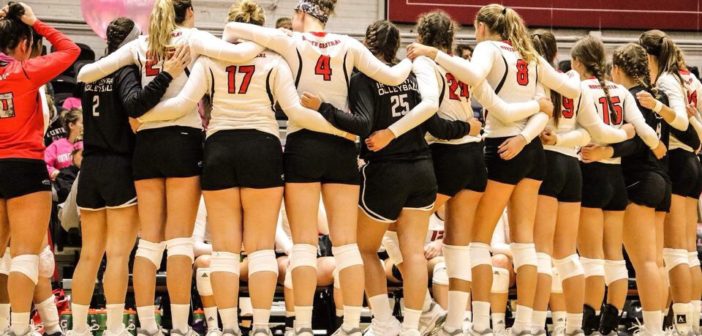Intercollegiate activities are a big part of the college experience for some students. Being an NCAA athlete is also a big part, whether you are getting a full ride to Duke to play basketball or playing women’s volleyball at North Central College.
These students still have to sacrifice a good amount of the college experience in order to be successful on and off the court. NCC volleyball player Toni Lawrence, ’19, said that she wanted to become a student-athlete because she simply “loves the sport of volleyball.” Lawrence believes the structure of the sport helps her be more successful since she cannot procrastinate on her school work.
Lawrence explains that there are a lot of things that go into being a student-athlete in college. Outside of the classroom, there are team activities as well with meals, film sessions, practice, games and athletic training to make sure they are ready for games. “The list is endless, but each part is key,” Lawrence said.
She said the hardest part about being a student-athlete is finding time for homework. She often finds herself waking up at 5 a.m. to do assignments because of other team activities.
“The worst part of being a student-athlete is missing out other opportunities on campus because of commitments with school or the team,” Lawrence said. “Despite the difficulties, the best part is the bond I will share forever with my team.”
The Athlete Network said that because of the unique factors student-athletes face in their lives, they are more likely to deal with depression and anxiety. The symptoms are not only because are they expected to succeed on the field, but they also need to do things so they can get their degree after college and maintain a high enough GPA to be academically eligible.
USA Today said that there is good stress and bad stress. The good stress can come from playing on an elite team, starting for the first time, earning an award, becoming a team captain or competing in a big game or tournament. These type of things are considered good stress because the adrenaline can lead to good results on the court.
However, bad stress for an athlete could be anxiety, anger, guilt, depression, shame, trouble sleeping, restlessness, aggression, poor performance, increased heart rate, headaches or fatigue. This can come from stressing out over things on the court and off the court too much, which can be hard for student-athletes not to do because their lives revolve around school and sports.

